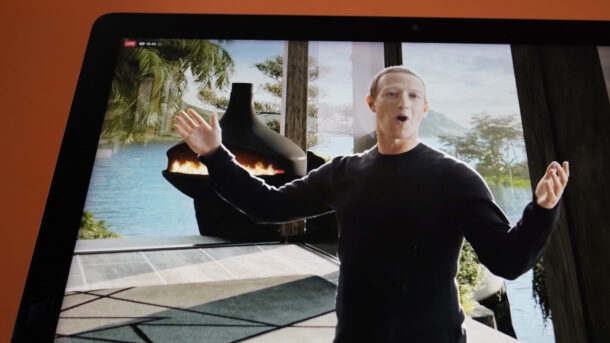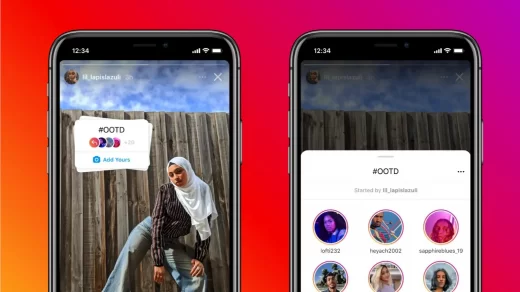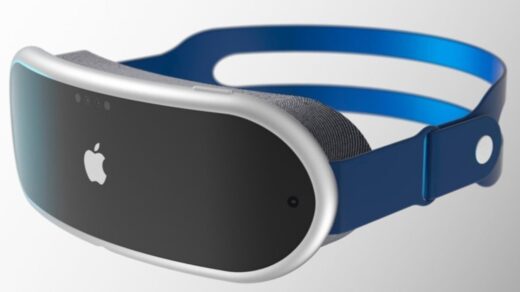Then is what Facebook’s metaverse is not It’s not an indispensable world to help us escape from our dystopian reality, a la Snow Crash. It will not bear VR or AR spectacles (at least, not at first). And, most importantly, it’s not commodity Facebook wants to keep to itself. Rather, as Mark Zuckerberg described to media ahead of moment’s Facebook Connect conference, the company is laying it will be the coming major computing platform after the rise of smartphones and the mobile web. Facebook is so confident, in fact, Zuckerberg blazoned that it’s renaming itself to”Meta.”
After spending the last decade getting happy with our phones and tablets — learning to gawk down and scroll virtually as a kickback — the Facebook author thinks we’ll be spending further time looking up at the 3D objects floating around us in the digital realm. Or perhaps you will be following a friend’s icon as they wander around your living room as a hologram. It’s principally a digital world concentrated right on top of the real world, or an” embodied internet”as Zuckerberg describes Before he got into the weeds for his grand new vision, however, Zuckerberg also pirated review about looking into the future now, as the Facebook Papers paint the company as a misruled mammoth that constantly prioritizes profit over safety. While admitting the soberness of the issues the company is facing, noting that it will continue to concentrate on working them with” assiduity- leading” investments, Zuckerberg said
.
Oculus Quest 2Devindra Hardawar/ Engadget “The reality is is that there is always going to be issues and for some people. they may have the view that there is noway really a great time to concentrate on the future. From my perspective, I suppose that we are then to produce effects and we believe that we can do this and that technology can make effects more. So we suppose it’s important to to push forward Given the extent to which Facebook, and Zuckerberg in particular, have proven to be untrustworthy servants of social technology, it’s nearly laughable that the company wants us to buy into its future. But, like the rise of print sharing and group converse apps, Zuckerberg at least has a good sense of what is coming next. And for all of his talk of turning Facebook into a metaverse company, he is adamant that he does not want to make a metaverse that is entirely possessed by Facebook. He does not suppose other companies will moreover. Like the mobile web, he thinks every major technology company will contribute commodity towards the metaverse. He is just hoping to make Facebook a colonist.
” Rather of looking at a screen, or moment, how we look at the Internet, I suppose in the future you are going to be in the gests, and I suppose that is just a qualitatively different experience,”Zuckerberg said. It’s not relatively virtual reality as we suppose of it, and it’s not just stoked reality. But eventually, he sees the metaverse as commodity that’ll help to deliver further presence for digital social gests — the sense of being there, rather of just being trapped in a drone window. And he expects there to be durability across bias, so you will be suitable to start drooling with musketeers on your phone and seamlessly join them as a hologram when you slip on AR spectacles.
Facebook Horizon HomeA dissembled exercise of HorizonHome.Facebook But, of course, the metaverse will not be erected in a day. At Facebook Connect moment, the company blazoned several ways it’s moving towards making it more accessible. For one, Facebook will be transubstantiating the Oculus Quest’s Home interface into”Horizon Home,”a more completely featured terrain where you can invite musketeers and hang out nearly. Ultimately, you will also be suitable to make and customize your home space. The Venues app is also getting”Horizon Venues,”where it will continue to serve as Facebook’s high spot for live virtual events. (The company also says NBA games are coming back to Venues in early November. The company is also making a major drive for inventors its new Presence Platform offers through APIs that’ll allow devs to make further inventive VR apps. The Sapience SDK will let them take advantage of the Quest 2’s cameras to bring the real world into VR; the Interaction SDK opens up the door for further hand- tracking relations; and the Voice SDK will — you guessed it — let you use your words in further ways.
The Sapience SDK, in particular, could reshape what Quest VR gests could look like. It includes Spatial Anchors, which will let virtual objects persist across sessions in a space. So if you placed a VR pet bunny on your coffee table, it should always be there every time you logged into an app. Also, there is a Scene Understanding point, which can help inventors get a better sense of your physical space. A character talking to you in VR could, for illustration, wander around your living room without hitting into cabinetwork Facebook PolarFacebook When it comes to stoked reality, Facebook also has plenitude of upgrades in store for its Spark AR platform. For one, it’s planning to launch an iOS app called Polar that’ll let people design their own AR goods and objects without any coding. It’s aimed at generators, who could use it to make unique 3D signage or makeup goods that their followers can apply. More educated devs will also be suitable to produce Geo- anchored objects, which are tied to specific locales in the real world, as well as AR goods that track your hands and body. They can also try out structure group videotape exchanges for Messenger, commodity that’ll ultimately be supported in other apps.
Like HoloLens and HTC Vive, Facebook plans to make a bigger drive into enterprises with Quest for Business. It’s a way for workers to log into Quest 2 headsets with secure work accounts (it’s presumably not great for your master to see how frequently you are playing Beat Saber, after each). Since they are meant for office surroundings, IT departments will also be suitable to manage work accounts, specific bias and integrate their own security features. The key is that it’s all going to be accessible on consumer- grade Quest 2 headsets, Facebook will not have to make entirely new tackle for work surroundings.
Image Credit Facebook
The company plans to take it slow with Quest for Business. It’s presently being tested with a many companies now, and a wider beta is anticipated to come coming time. At this point, Facebook is not planning to officially roll it out to every company until 2023. Quest for Business will replace the former Oculus for Business program, which needed a special$ 799 Quest 2 headset Facebook formerly showed off one way remote meetings could be handled better with Horizon Manufactories, and that app is going to get better latterly this time with customizable manufactories. And when it comes to productivity, the company is also opening up the Oculus Store to 2D apps like Slack, Dropbox, Instagram and Facebook. You will be suitable to dive into those apps right from your Horizon Home screen. It’s accessible, but it’s also a cocky way to keep you from taking off your headset just to answer a Slack communication.
Not everyone would want to spend a whole workday wearing a VR headset, but it’s not hard to imagine how unborn AR spectacles could let you dive into Slack and Office apps just about anywhere. They’ll just be 2D protrusions floating around you, effects that nothing differently would be suitable to see. That may feel like wisdom fabrication moment, but 15 times agone, so did the idea of having a touchscreen- enabled supercomputer in your fund with blazing fast wireless internet As Zuckerberg sees it, the metaverse will eventually lead to a more natural relationship with technology (while, of course, giving us another way to buy digital goods).”It’s not about you spending further time on defenses,”he told press before making a hasty retreat.”It’s about making the time we spend better and I suppose you know defenses can not really convey the full sense of presence.”




